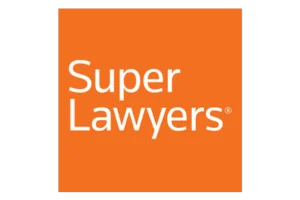Every time someone is arrested, the arrest itself becomes part of a permanent record. Everyone has two types of criminal records,
- A conviction record and
- An arrest record.
Even if you were arrested and your case was subsequently dismissed, rejected by the prosecuting agency, or found not guilty at trial, you will still have a stain on your arrest record. Any record of an arrest can potentially be found by employers or government agencies. A dismissal or not guilty verdict does not automatically wipe the arrest records clean. An arrest or criminal record can cause major problems when it comes to job applications, credit applications, renting an apartment, purchasing a home, or professional licenses. An arrest record could hinder your career prospects, living arrangements, or educational aspirations. It can also affect the status of your security clearance or professional license — like a medical license, nursing license, or pilot’s license, among other collateral consequences. Your fingerprints, mugshot, and police reports can still be accessed by many companies or agencies if you don’t take the proper steps to clean your record.
But you may be eligible to wipe these records clean through a legal process known as expunction. Only certain legal outcomes make an arrest eligible for an expunction.
The question of whether your arrest situation is eligible to be expunged leaves many people guessing as to whether they are eligible. An experienced Texas criminal defense lawyer can discuss Texas expunction eligibility and walk you through the process step-by-step based specifically on your situation.
WHO QUALIFIES FOR AN EXPUNCTION IN TEXAS?
According to the Texas Code of Criminal Procedure § 55.01, you may qualify for an expunction if you were “placed under a custodial or noncustodial arrest for commission of either a felony or misdemeanor.” In Texas, however, a distinction is made between persons who are entitled to an expunction and persons who are eligible for an expunction.
You are entitled to an expunction if:
- you were acquitted of the crime with which you were charged
- you were convicted but later found to be innocent
- you were convicted but later pardoned
- you were charged with an offense but the case against you was later dismissed and the statute of limitations to reopen the case has expired, or
- you were arrested but never charged, and you satisfy any corresponding waiting period (see below).
You are eligible for an expunction under certain circumstances if:
- you were tried and convicted at trial court but then acquitted by the court of criminal appeals or a court of appeals, or
- the attorney prosecuting the case recommends expunction.
WHO DOES NOT QUALIFY FOR AN EXPUNCTION IN TEXAS?
- Not everyone or their respective records qualify for an expunction in Texas, even if you may initially qualify according to the qualifying criteria listed above. The court will deny expunction in the following circumstances:
- If you are an adult and you received deferred adjudication.
- If you are an adult and you received probation.
- If you jumped bail.
- If you have been convicted of a felony within five years of the arrest that you want to have expunged.
- If the charge filed against you was a felony and it was dismissed prior to the expiration of the statute of limitations — at which time you must wait for the statute of limitations to expire before applying for an expunction.
- If the offense you want to be expunged is part of a “criminal episode” and charges are pending for a different crime or you were already convicted of a crime that occurred during the same alleged criminal episode. According to Texas Penal Code § 3.01, –
- criminal episode means the commission of two or more offenses, regardless of whether the harm is directed toward or inflicted upon more than one person or item of property, under the following circumstances:–
- the offenses are committed pursuant to the same transaction or pursuant to two or more transactions that are connected or constitute a common scheme or plan; or
- the offenses are the repeated commission of the same or similar offenses.
- criminal episode means the commission of two or more offenses, regardless of whether the harm is directed toward or inflicted upon more than one person or item of property, under the following circumstances:–
WHAT CRIMES QUALIFY FOR AN EXPUNCTION IN TEXAS?
As mentioned, most misdemeanors and felonies qualify for expunction so long as the person petitioning the court for expunction meets the criteria. Misdemeanors and Felonies can include, but are not limited to the following:
- DWI
- Felony DWI
- Underage DUI
- DWI Commercial Driver’s License
- DWI Marijuana
- DWI Prescription Drugs
- DWI with a child passenger under 15
- Flying While Intoxicated
- Boating While Intoxicated
- Intoxication Assault
- Intoxication Manslaughter
- Open Container
- Drug Possession
- Criminally Negligent Homicide
- Vehicular Manslaughter
- Vehicular Assault
- White Collar Crimes
- Domestic Violence
- Prostitution & Solicitation
- Texting and Driving
- Hit & Run FSGI
- Hit & Run FSRA
- Evading Arrest
- Manslaughter
- Assault
- Aggravated Assault
- Kidnapping
- Unlawful Restraint
- Injury to Child, Elderly, Disabled
- Deadly Conduct
- Obstructing a Highway
- Riot
- Disorderly Conduct
- Terroristic Threats
IS THERE A WAITING PERIOD FOR AN EXPUNCTION IN TEXAS?
On the other hand, if you were arrested but never formally charged with the crime, you may be required to wait a specific period of time before you can file for an expunction. This time period depends on the classification of the alleged crime:
- 180 days from the date of your arrest for a Class C misdemeanor
- One year from the date of your arrest for either a Class A or B misdemeanor
- Three years from the date of your arrest for a felony.
HOW DO YOU OBTAIN AN EXPUNCTION IN TEXAS?
You must file a petition for an expunction in order to receive expunction relief. The process to apply for an expunction involves:
- File a Petition for Expunction that formally asks the court to grant an Order for Expunction;
- Providing a Notice of Hearing so that the court can set a hearing on the matter;
- Notarizing the Petition at the time you sign it; and
- Filing the form with the district court according to the county in which you live or according to which court heard your case if the case was originally assigned to a court.
The expunction process really requires the expertise of an experienced lawyer skilled in handling expunctions. If you make an error, that error can lead to unfortunate consequences, like the denial of your expunction, and the preclusion of receiving relief of an expunction due to the error. The petition requires specific information, including:
- Personal identifying information
- The charged offense, the case number, the name of the court, how the case was resolved (i.e., dismissed, acquitted), and the date it was resolved
- Date of the arrest
- Date of the alleged offense
- Name of the arresting agency (e.g., local police, sheriff’s office, other)
- A list of all the agencies or other entities that may have a record of your arrest.
An Order for Expunction must already be drafted by either you or your attorney. At the time of the hearing and/or at the time the judge grants the expunction, this order must be presented for the judge’s signature. A copy of the signed order should be provided to all relevant parties, including any agency or organization that may have records or files related to the offense that the judge just expunged. Finally, once the Order for Expunction granting or denying the expunction is signed, your records — arresting and/or criminal records — will either be deleted or returned to the court clerk — depending on the language in the Order for Expunction.
AFTER AN EXPUNCTION IS GRANTED, IS THERE ANYTHING ELSE TO BE DONE?
If you want to be certain your arrest or criminal records have been erased, the agencies have sixty (60) days to comply with the court’s expunction order. So wait at least 60 days before requesting a criminal history from the Department of Public Safety. Review the history to make sure your arrest does not appear on it.
CONTACT AN EXPERIENCED CRIMINAL DEFENSE LAWYER TO HELP YOU WITH YOUR PETITION FOR EXPUNCTION
If you want to have your records expunged, you should consult with an experienced criminal defense attorney. The process can be intimidating and errors can result in the court denying your petition for expunction. Contact Barton & Associates Law Firm, PLLC now to discuss your particular situations and possible expunction opportunities.
OUR ADVANTAGES
Why Hire Barton & Associates Law Firm?

Former Felony Prosecutors
& District Attorneys
Former Felony Prosecutors
& District Attorneys
Gary J. Barton has worked in numerous District Attorney’s Offices throughout the country. As a former Major Crimes Prosecutor handling Capital Murders, Murders, and Heinous Crimes, Mr. Barton has seen almost every type of accusation.

Our Experience
Our Experience
We have handled nearly every type of accusation, from misdemeanor marijuana charges to capital murder and everything in between, including; Sexual Assault of a Minor, Sexual Assault, Aggravated Assault with a Deadly Weapon, Intoxication Manslaughter, DWI, Possession of Controlled Substance and many more.

24/7 Availability to quickly
address your needs
24/7 Availability to quickly
address your needs
Our firm is available all hours of the day for your emergency needs should they arise as a client.

We return all phone calls
within hours
We return all phone calls
within hours
Unlike most firms who take days, weeks, or even months to respond to a client’s needs, we have a strict 24-hour business return phone call policy. You will hear from your law firm.

A record of winning
results for clients
A record of winning
results for clients
See testimonials here.






